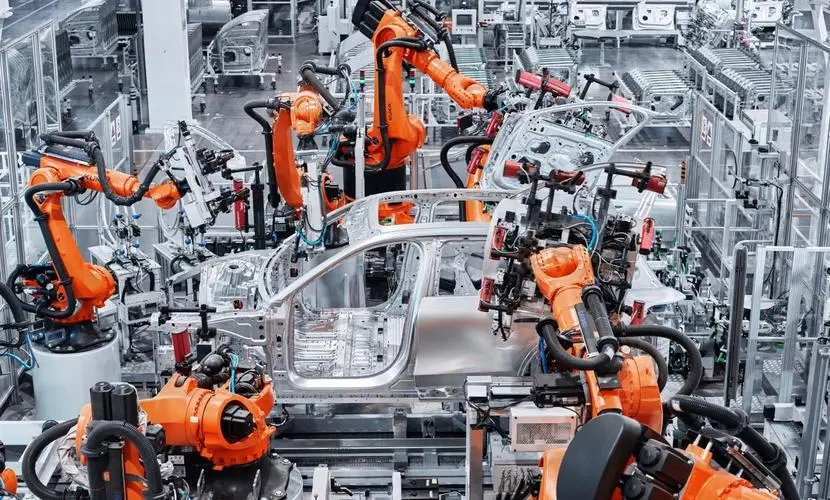
Since the price war is becoming even more violent and there was a festival in February, the sales volume in February is very depressed.
The reason why the price war is becoming even more violent is because the auto companies are starting to scramble the market share and new users. At present, more than 20 auto companies are following the price war. Such frequent reducing prices not only may cause a wait-and-see mood, but also damage the rights and interests of old users.
Recently, according to Car Quality Network’s Data, In February, a record-breaking total of 15,411 valid consumer complaints were received, marking a 9.7% increase from the previous month and an impressive 53.7% increase compared to the same period last year. 'Price changes' surpassed 'car body rusting' as the top typical complaint issue for January, with feedback points on this matter from 578 to 6,884.
After the Chinese New Festival, BYD first launched a new model and changed the MSRP. The price is getting lower than before. At the same time, SAIC-GM-Wuling, Changan Qiyuan, Leapmotor and Nezha will continue to follow the price war.
In terms of car price segmentation, most complaints are triggered by car models priced below 150,000RMB. Consumers in this price range are also more sensitive to pricing factors, which significantly influence their car purchasing decisions.
In this game of price and value, consumers' choices between new energy vehicles and fuel vehicles, as well as the optimal timing to purchase a car amidst price wars, have become the market's focal point. Faced with successive waves of price reductions from automakers, consumers have naturally become more cautious in their decision-making.
Auto analysts believe that few consumers prefer to purchase entry-level based on significant structural issues. The purchasing power of the middle-to-low-end market is insufficient, necessitating an improvement in the consumption ability of ordinary consumers when purchasing entry-level products. Achieving relative price balance in the automotive market and facilitating consumer upgrading for first-time buyers is crucial.
From a market perspective, significant promotions by car manufacturers have not achieved the goal of increasing sales. In February, wholesale sales of new energy passenger vehicles in February were 447,000 units, showing a YoY decrease of 9.7% and a MoM decrease of 35.0%. Retail sales for the same period reached 388,000 units in the new energy vehicle market, down 11.6% YoY and down 42.1% MoM.
According to the research report, three main factors contributed to the decline in new energy vehicle sales in February: a longer holiday, an increased number of people returning home, and cold weather during the holiday period along with a higher volume of travelers. These factors have impacted consumer confidence regarding range and recharging issues.
He Xiaopeng predicts that by 2023, declining battery prices will enable all car manufacturers to reduce prices to some extent, and he even envisions electric vehicles becoming cheaper than conventional cars in a few years.
 Photo credit:Changan Auto
Photo credit:Changan Auto
During a media interview, Zhu Huarong, Chairman of Changan Automobile, expressed his belief that the prices of new energy vehicles will become cheaper. He emphasized that price competition is the most effective way to restore the industry's true value.
Based on feedback from car owners and potential consumers, frequent price wars among automobile companies can lead to consumer dissatisfaction and a decline in brand trust. This can also discourage non-car owners from becoming buyers, hindering the expansion of the consumer base.
The price war in the new car market has significantly impacted the used car market, causing operational difficulties for many dealers. This 'secondary disaster' exacerbates unfavorable factors for the industry ecosystem.
The price war in the automotive industry lasted from 2023 until 2024 and intensified over time. The overall profit margin of the entire automotive industry has been continuously decreasing at a rate of 5% since 2023, which is already lower than the average level of 5.8% for all industries. Leading car companies need to engage in multiple rounds of price wars to ensure effective price reductions and accelerate industry consolidation. According to McKinsey's predictions, there will be more mergers and deep collaborations within China's auto market in the next three to five years, with the top ten car companies maintaining a share of over 90%. This includes various strategies such as pricing tactics. Essentially, this reflects how rapidly the market is evolving to keep up with technological changes and consumer trends so as to capture more market share.
Translator:Wei Xiong
Reviser:Yan Luo

 Room 1104,Block B,JingBan Building,6 Middle Beisanhuan Road,Xicheng District,Beijing
Room 1104,Block B,JingBan Building,6 Middle Beisanhuan Road,Xicheng District,Beijing
 (8610)62383600
(8610)62383600
 quanqixiang@carresearch.cn
quanqixiang@carresearch.cn
 京公网安备:11010202007638号|京ICP备17032593号-2|Report illegal and bad information:010-65993545-8019 jubao@carresearch.com
京公网安备:11010202007638号|京ICP备17032593号-2|Report illegal and bad information:010-65993545-8019 jubao@carresearch.com
Legal support:Beijing Yingke Law Firm|All rights reserved, DO NOT reproduce without permission